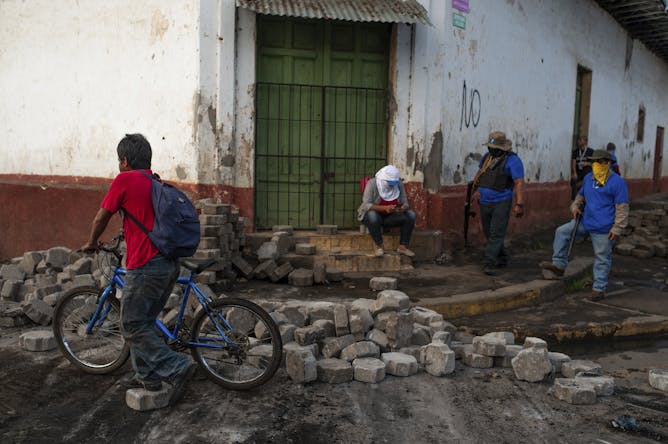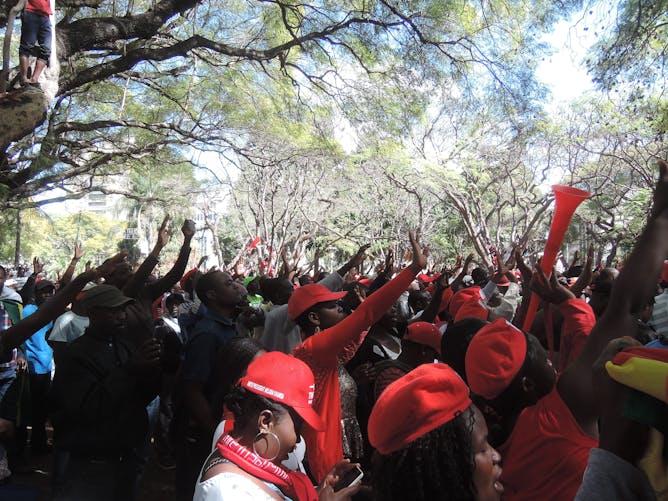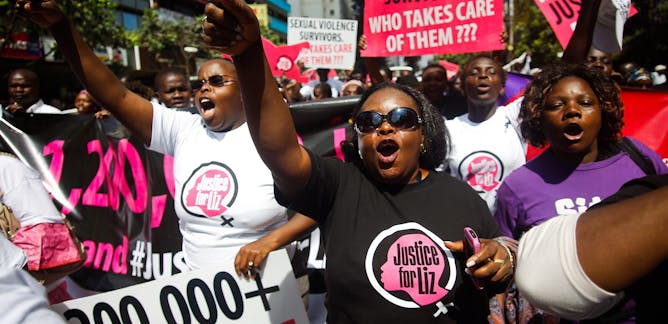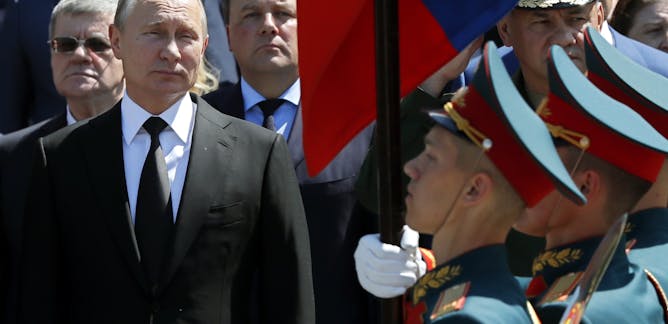|
In recent decades, most Central American migrants seeking asylum in the US have arrived from Honduras, Guatemala and El Salvador where rampant violence has forced residents to flee. Crime researcher José Miguel Cruz predicts that, as a bloody political crisis escalates in neighboring Nicaragua, many more citizens of that once-safe nation will join the long trek northward to seek refuge.
In a week’s time Zimbabweans will cast their votes in elections that carry high stakes for both the ruling Zanu-PF, under new leader, President Emmerson Mnangagwa and the opposition MDC-Alliance’s Nelson Chamisa. David Moore argues that Zanu-PF is hoping to legitimise its power by winning an outright majority. But the most recent poll suggests the opposition might be in with a chance.
|

Militias guard a barricade after police and pro-government militias stormed a rebel-held neighborhood in Masaya, Nicaragua, on July 17, 2018.
AP Photo/Cristibal Venegas
Jose Miguel Cruz, Florida International University
Nicaragua has exploded in violence since mass protests began against President Daniel Ortega in April, with hundreds dead and thousands wounded. Amid such chaos, criminal violence is likely to follow.
|

Supporters of the opposition MDC Alliance in Unity Square before marching to protest outside the Zimbabwe Electoral Commission.
David Moore
David B. Moore, University of Johannesburg
A new survey suggests opposition Zimbabwean leader Nelson Chamisa is closing in on the ruling Zanu-PF's President Emmerson Mnangagwa.
|
Politics + Society
|

Cynthia Wangamati, University of Oslo
Rape culture in Kenya means that women are often blamed for being victims of assault. This needs to change.
| |

Jean S. Renouf, Southern Cross University
US President Donald Trump's attacks on allies and conciliatory actions toward Russia have made European leaders feel more vulnerable than ever.
|
|
|
Science + Technology
|
-
Frans von der Dunk, University of Nebraska-Lincoln
Forty-nine years ago, on July 20, 1969, American astronauts planted a US flag on the moon. A space lawyer explains the implications, who owns the moon, and what it means for lunar mining.
|
|
Business + Economy
|
-
Robert L. Fischer, Case Western Reserve University
A White House Council concluded that the war on poverty is "largely over." But, while poverty among seniors has declined, poverty among adults and children as changed little over the last 40 years.
|
|